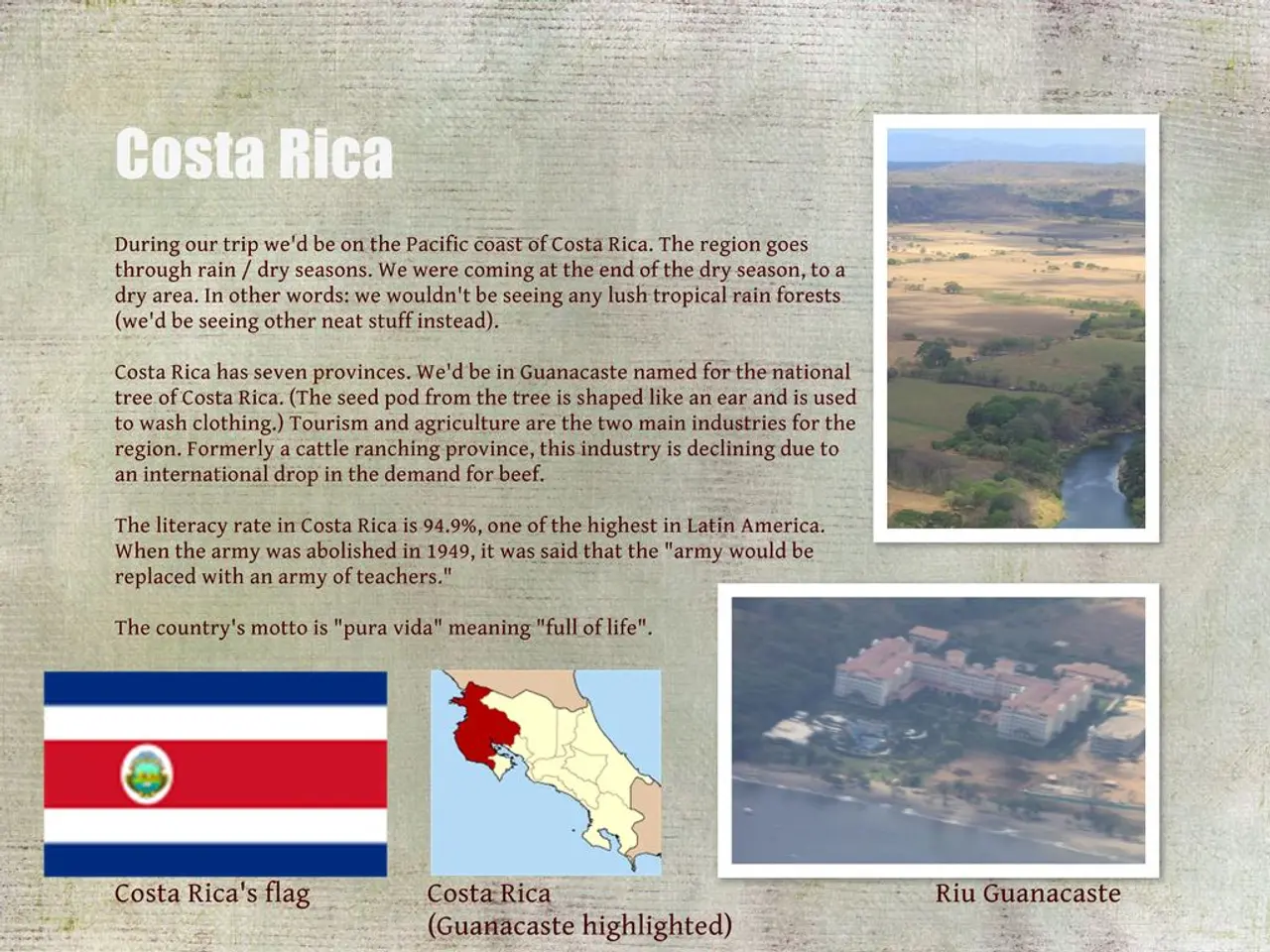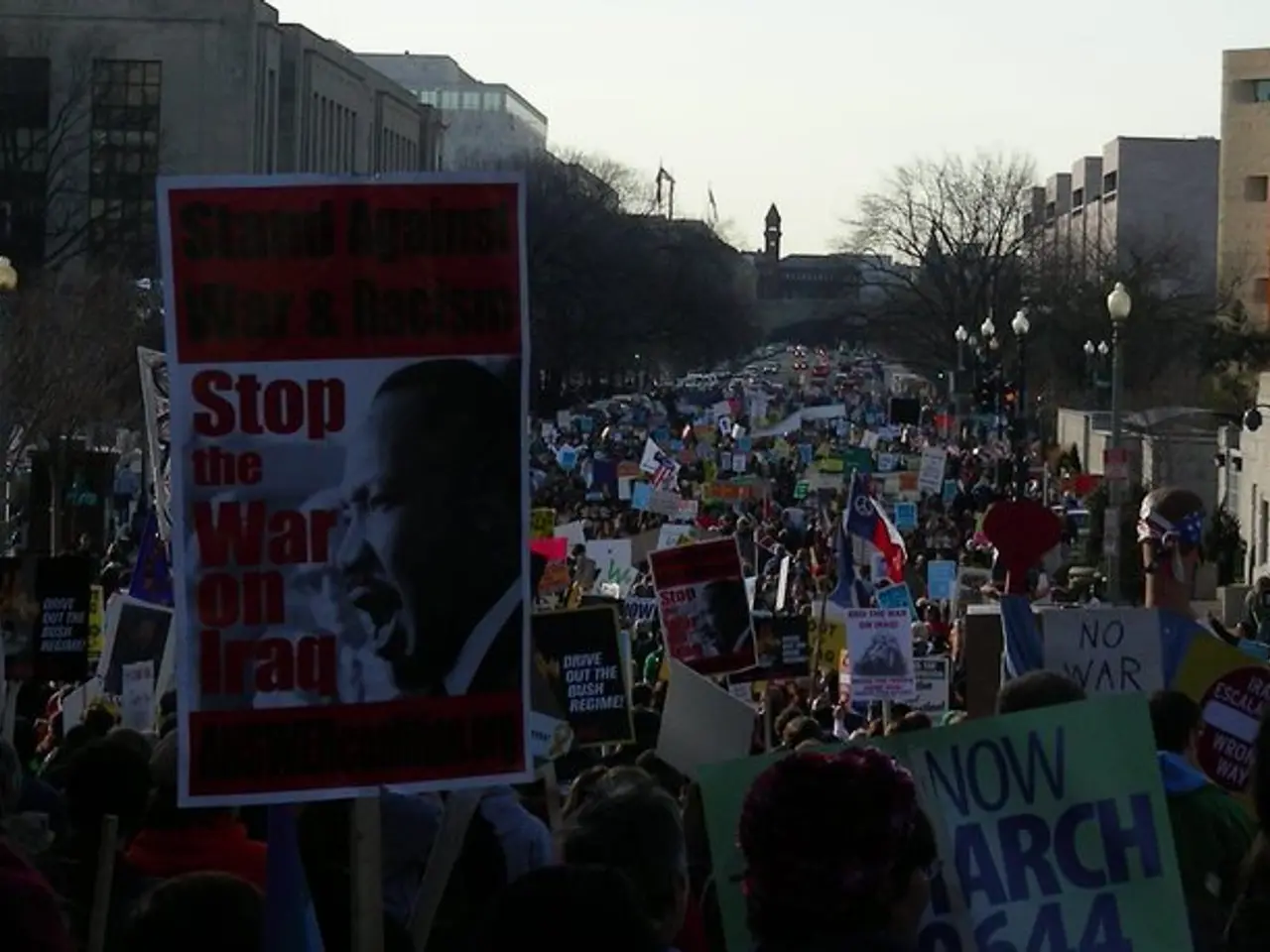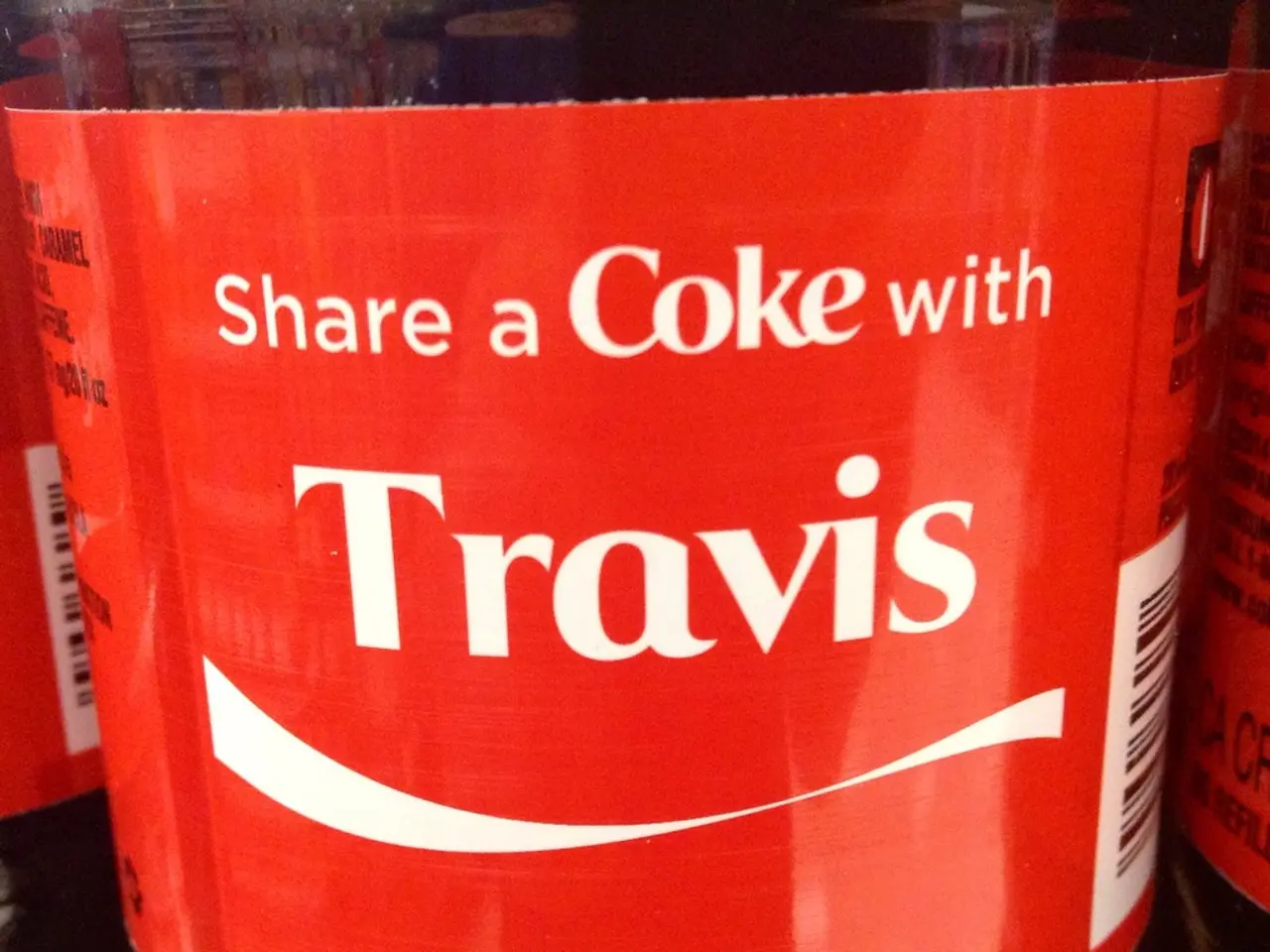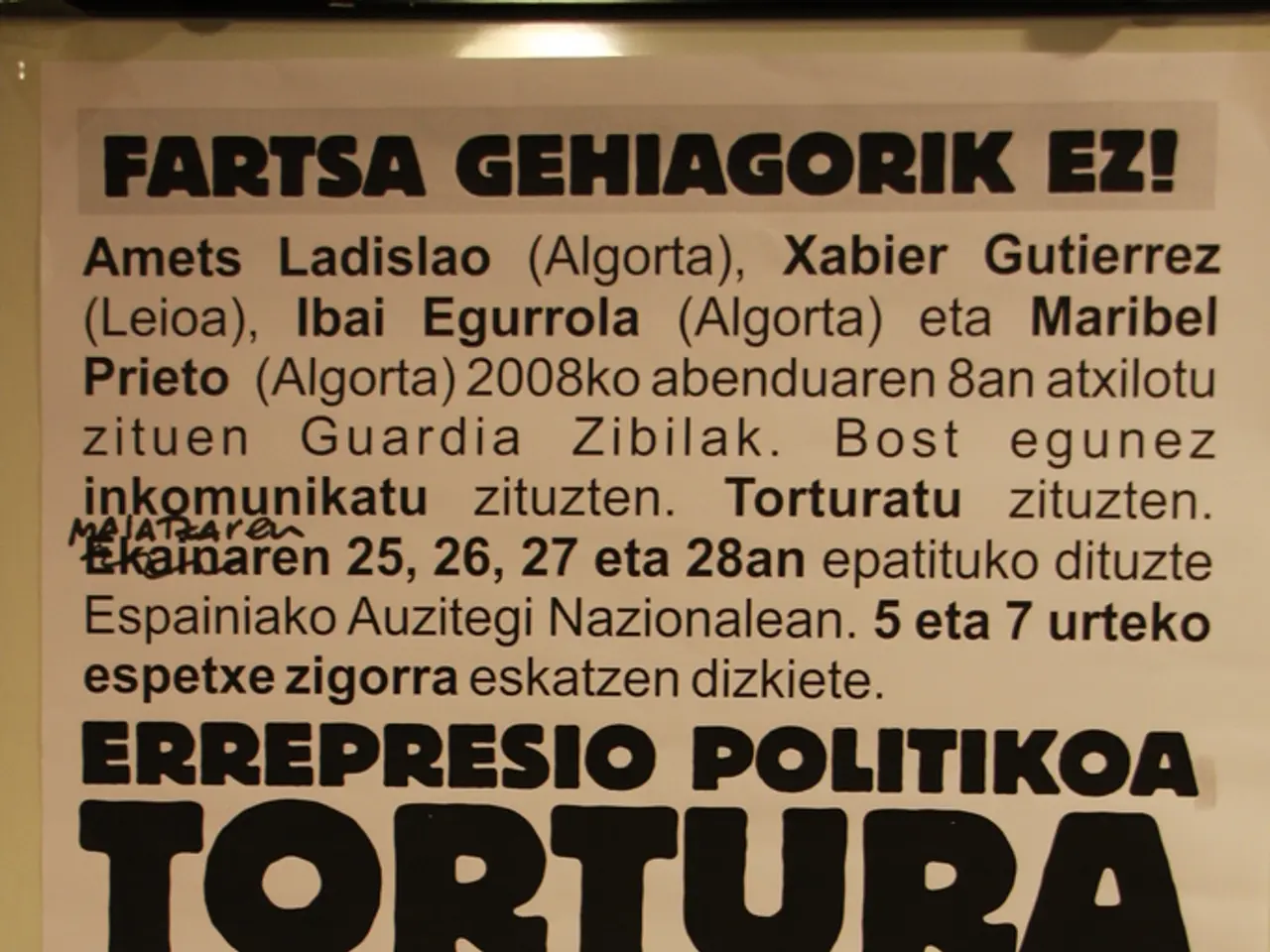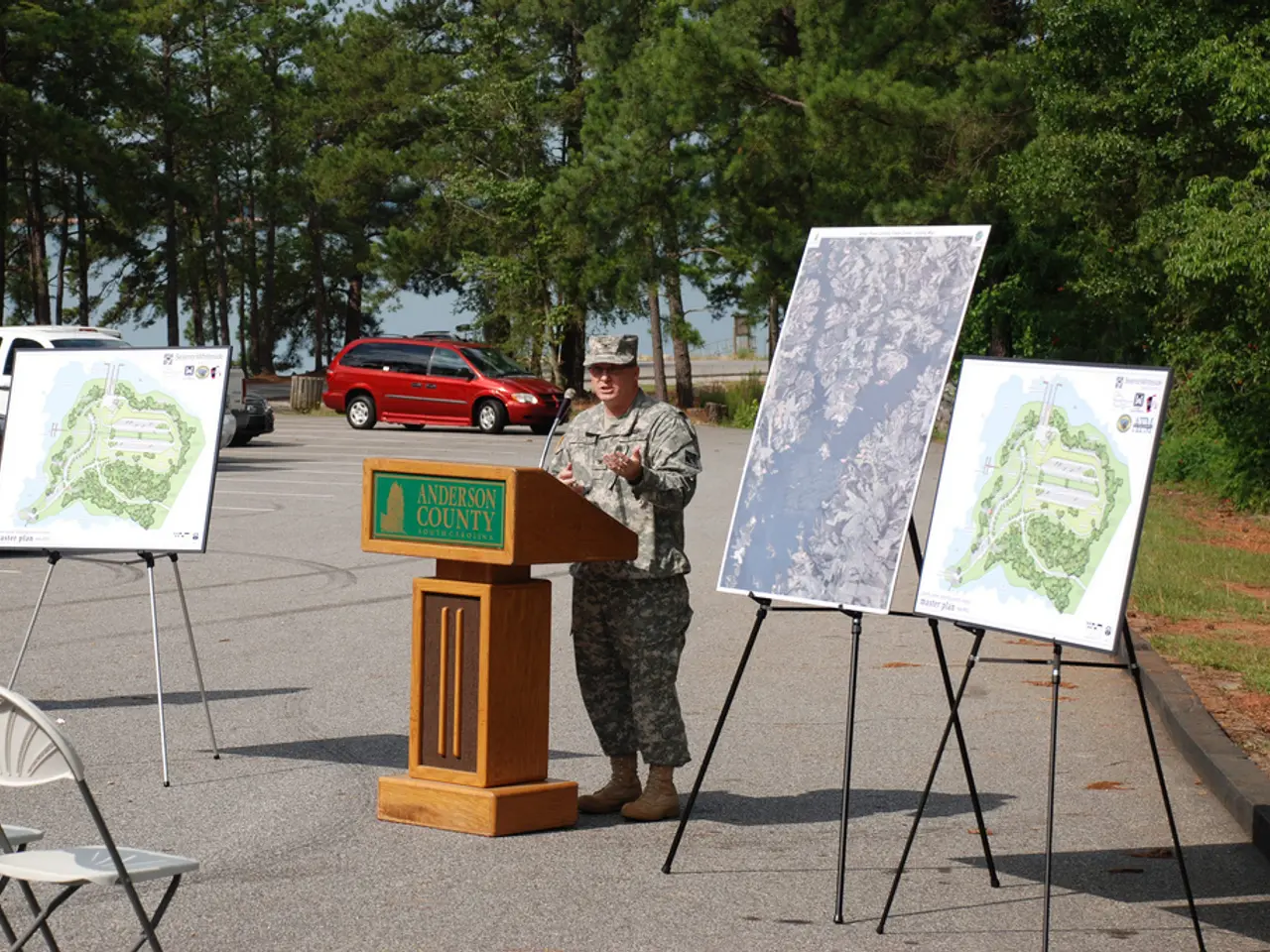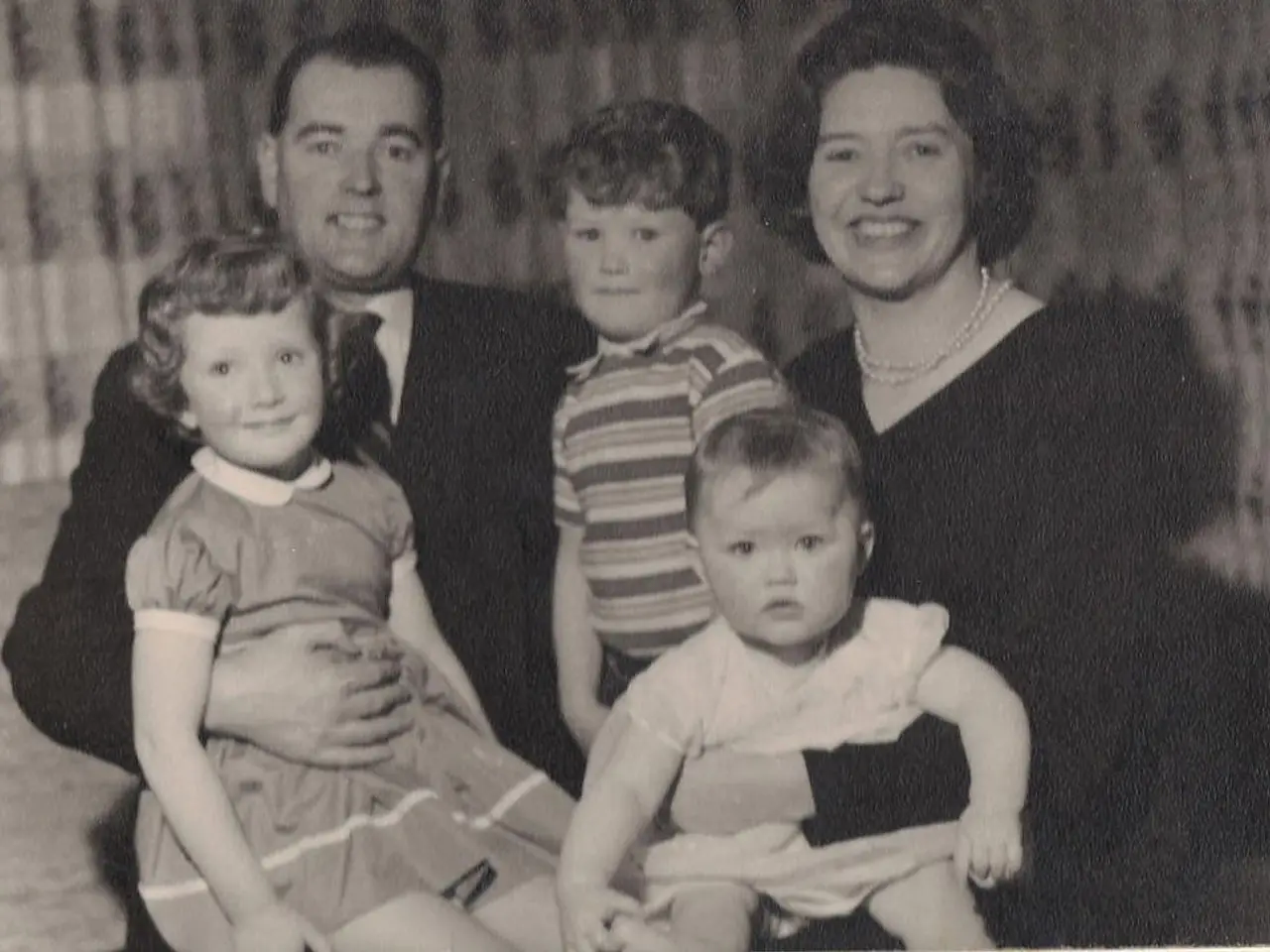El Salvador's severe measures against criminal activities drastically altered the nation, leading the U.S. to deem it safer than Britain.
El Salvador's President Nayib Bukele has launched an aggressive crackdown on crime, a campaign that has been marked by controversial measures and human rights controversies.
Since May 2025, Bukele has intensified his crackdown, with around 85,000 people imprisoned in efforts to suppress crime, particularly targeting gang members like those from MS-13. Criticism from human rights organizations centers on these harsh policies and allegations of corruption and coercion.
Bukele has reportedly made a deal with the U.S. government involving the extradition of MS-13 leaders from American prisons to El Salvador’s Terrorism Confinement Centre (CECOT), in exchange for housing deported migrants from the U.S., accompanied by financial incentives including a discounted rate for this arrangement. Federal courts in the U.S. have dismissed charges against some MS-13 leaders to facilitate their return, raising concerns about judicial manipulation.
Moreover, Bukele faces accusations of making covert deals with criminal gangs to stabilize public safety and strengthen his political power, a move that further complicates human rights perspectives on his crackdown.
The human rights criticism surrounding Bukele’s crime crackdown, especially in relation to CECOT, focuses on the mass imprisonment of suspects, allegations of political and judicial manipulation, suppression of dissent, and questionable agreements with criminal elements and foreign governments, all raising significant concerns about the rule of law and human rights protections in El Salvador.
Inmates in the Terrorism Confinement Centre, for instance, sleep on bare concrete slabs with no mattresses, and food is limited. Around 1,000 people a day were being detained on suspicion of gang involvement. In February 2025, Bukele signed a law which ordered children held for organized crimes to be sent to adult prisons.
In 2015, El Salvador recorded 6,656 murders, but by 2024, the murder rate dropped by 98%, making it safer to visit than Britain or France. The government has introduced a national informant hotline, offering cash rewards to citizens who report suspected gang members. El Salvador now has the highest prison population per capita in the world.
In 2022, Amnesty International reported massive human rights violations under the current state of emergency, including thousands of arbitrary detentions, violations of due process, torture, and ill-treatment. Checkpoints with troops carrying rifles have been set up, and cops go door to door in search of suspected criminals. This tactic, called a 'security fence,' has been used in dozens of operations since 2022.
Bukele's re-election in 2022 was controversial, with 85% of the vote and his main opposition getting less than 7%. Congress abolished the limit on presidential terms, allowing him to stay in power for life if re-elected. President Donald Trump has hailed Bukele's policies, and the two have become close allies.
Despite the significant drop in crime rates, the human rights concerns surrounding Bukele's crime crackdown remain a contentious issue, with many calling for reforms to ensure the protection of basic rights and due process.
[1] Source: Amnesty International, Human Rights Watch, and other reputable human rights organizations.
Business news outlets and general-news channels have reported on the ongoing controversy surrounding El Salvador's President Nayib Bukele's aggressive crackdown on crime. Criticism from human rights organizations, including Amnesty International and Human Rights Watch, has focused on allegations of political and judicial manipulation, mass imprisonment of suspects, suppression of dissent, and questionable agreements with criminal elements and foreign governments. The national informant hotline, offering cash rewards for reporting suspected gang members, and the use of troops at checkpoints and door-to-door searches have also raised concerns about human rights violations. Despite the significant drop in crime rates, the controversy over Bukele's crime-fighting methods continues to fuel debates about the rule of law and human rights protections in El Salvador. [1]
